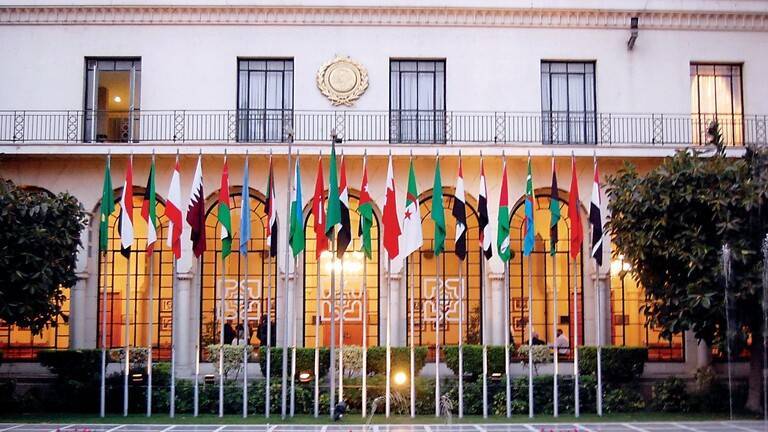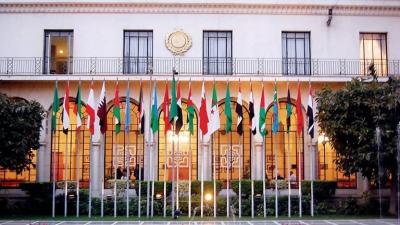The Arab League is the oldest regional organization in the world established after World War II, with dozens of summits held in various Arab countries since 1945, resulting in hundreds of resolutions, some of which remained mere words on paper. Below is a glimpse of the dates of Arab summits and the most notable decisions resulting from them:
- **May 1946, Inshas, Alexandria**: Called by King Farouk. The summit called for "stopping Jewish immigration" and "achieving the independence of Palestine, and forming a government that guarantees the rights of all its legitimate inhabitants, without discrimination between different elements and sects."
- **November 1956, Beirut, Lebanon**: Called by Lebanese President Camille Chamoun. The final statement confirmed support for Egypt against the "tripartite aggression" and expressed support for the Algerian people's struggle against French occupation.
- **January 1964, Cairo, Egypt**: The first regular Arab summit convened at the invitation of Egyptian President Gamal Abdel Nasser to discuss Israel's project to divert the waters of the Jordan River.
- **September 1964, Alexandria, Egypt**: Welcomed the establishment of the Palestine Liberation Organization (PLO) and recognized it as "representative of the Palestinian people in assuming responsibility for the cause of Palestine."
- **September 1965, Casablanca, Morocco**: Arab leaders agreed to the PLO's request to create a Palestinian National Council and signed the Arab Solidarity Charter.
- **August-September 1967, Khartoum, Sudan**: Known as the Summit of "the three no's": no peace, no negotiations, and no recognition of Israel, held after the June 1967 setback.
- **December 1969, Rabat, Morocco**: An incomplete summit that did not issue a final statement, aimed at establishing a unified strategy to confront Israel.
- **September 1970, Cairo, Egypt**: An extraordinary summit during heightened confrontations between Jordan and the Palestinians. The meeting, boycotted by Syria, Iraq, Algeria, and Morocco, decided to form a Quartet Committee to resolve the dispute, leading to a reconciliation between Jordan's King Hussein and Palestinian leader Yasser Arafat. Egyptian President Gamal Abdel Nasser died the next day.
- **November 1973, Algiers**: This summit, convened at the request of Syria and Egypt after the October War, affirmed the necessity for the full liberation of all territories occupied by Israel in 1967 and decided to continue using oil as a weapon in the battle.
- **October 1974, Rabat, Morocco**: Arab leaders endorsed the PLO as the sole legitimate representative of the Palestinian people.
- **October 1976, Riyadh, Saudi Arabia**: A six-party summit focused on the Civil War in Lebanon. It called for a cease-fire and the implementation of the "Cairo Agreement," and decided to reinforce Arab security forces to become a deterrent of thirty thousand soldiers, primarily composed of Syrians.
- **October 1976, Cairo**: Ratified the decisions of the Riyadh summit and aimed at rebuilding Lebanon, establishing a fund to finance Arab security forces in Lebanon.
- **November 1978, Baghdad, Iraq**: The summit, held in the absence of Egypt, rejected the Camp David Accords, deeming them as impinging on the rights of the Palestinian people and the Arab nation.
- **November 1979, Tunis**: Decided to implement the decisions of the boycott against Israel and support Palestinian resistance.
- **November 1980, Amman, Jordan**: The summit, boycotted by Syria, Algeria, the PLO, and Lebanon, expressed support for Iraq in its war with Iran.
- **November 1981, Fez, Morocco**: Approved a peace initiative implicitly recognizing Israel, proposed by Saudi Crown Prince Fahd bin Abdulaziz.
- **August 1985, Casablanca, Morocco**: An extraordinary summit that issued a final statement addressing various issues, including the Lebanese Civil War and the Iraq-Iran war, while condemning terrorism in all its forms, especially Israeli terrorism.
- **November 1987, Amman, Jordan**: An extraordinary summit regarding the Iraq-Iran war. It decided on "full solidarity with Iraq" while condemning Iran's persistent occupation of Arab territory in Iraq.
- **June 1988, Algiers**: An extraordinary summit that supported the Palestinian intifada that erupted in December 1987 and called for an international conference on the Middle East that includes the PLO.
- **May 1989, Casablanca**: An extraordinary summit that saw Egypt's return to the Arab League, expressed support for the Palestinian state declared by Yasser Arafat during the Palestinian National Council in Algiers in 1988, and aimed to expand recognition of it.
- **May 1990, Baghdad**: An extraordinary summit condemning the increased Jewish immigration to Israel and expressing solidarity with Iraq against threats and media campaigns directed at it.
- **August 1990, Cairo**: An extraordinary summit following Iraq's invasion of Kuwait. It condemned the "aggression" of Iraq against Kuwait and called for the withdrawal of Iraqi forces, reaffirming non-recognition of Iraq's annexation of Kuwait.
- **June 1996, Cairo**: An extraordinary summit after the right-wing government led by Benjamin Netanyahu came to power in Israel, concerning the future of the peace process.
- **October 2000, Cairo**: An extraordinary summit known as the "Al-Aqsa Conference," held a month after the outbreak of the second Palestinian intifada. It decided to establish a fund to support the intifada named "Al-Quds Intifada Fund" and another to protect the Al-Aqsa Mosque (Al-Aqsa Fund).
- **March 2001, Amman**: A regular summit, the first in ten years since 1964, aimed at revitalizing the Arab boycott of Israel and curbing Israeli infiltration in the Arab world.
- **March 2002, Beirut**: Approved the peace initiative proposed by Saudi Crown Prince Abdullah bin Abdulaziz, which offered Israel complete withdrawal from territories occupied in 1967 in exchange for comprehensive peace and normalization of relations with member states.
- **March 2003, Sharm El-Sheikh**: Arab leaders agreed on the "absolute rejection" of strikes against Iraq and emphasized the necessity to resolve the Iraqi crisis through peaceful means, "avoiding war" and completing Iraq's implementation of UN Resolution 1441 (2002).
- **May 2004, Tunis**: Arab leaders approved a "historic" commitment to launch reforms, underscoring the importance of the Arab Initiative and the roadmap set by the Quartet regarding the Middle East, condemned the separation wall in the West Bank, and confirmed the rejection of the resettlement of Palestinians.
- **March 2005, Algiers**: Issued the "Algiers Declaration," asserting the need to activate the Arab peace initiative that Israel rejected on the same day.
- **March 2006, Khartoum**: Adopted a statement to make the Middle East a zone free of weapons of mass destruction, rejected Israeli Prime Minister Ehud Olmert's unilateral plan for determining borders with Palestinian territories, supported Sudan concerning the Darfur issue, and provided financial support for African Union forces in Darfur.
- **March 2007, Riyadh**: Again decided to activate the Arab peace initiative after five years of its launch, and urged Israel to accept it, while affirming support for the Palestinian unity government formed shortly before, with participation from Fatah and Hamas.
- **March 2008, Damascus**: Experienced a deep Arab split. Half of the Arab leaders were absent, particularly those close to the United States who accused Damascus of hampering the election of a president in Lebanon. The summit called for the election of a consensus president in Lebanon, reaffirmed commitment to the Arab peace initiative, rejected the division of Iraq, and urged the Lebanese government to disband militias and build an army.
- **March 2009, Doha**: The Doha summit's declaration rejected the ICC's decision to issue an arrest warrant against Sudanese President Omar al-Bashir and saw reconciliation between Saudi King Abdullah and Libyan leader Muammar Gaddafi, who had been rivals for years, particularly since the Sharm El-Sheikh summit in 2003.
- **January 16, 2009, Doha**: "Emergency Gaza Summit" attended by "resistance" countries, where "moderate" states refused to participate.
- **October 2010, Sirte, Libya**: Adopted a series of general recommendations regarding the activation of joint Arab action, emphasized support for Sudan and Somalia, and postponed several contentious issues to the next Arab summit in Baghdad.
- **March 2012, Baghdad**: Called for a dialogue between the Syrian government and the opposition, urging them to unify, and demanded that the government and all opposition factions engage positively with the joint UN-Arab envoy to Syria, Kofi Annan, to begin serious national dialogue based on the solution plan proposed by the League and the UN General Assembly resolution.
- **March 2013, Doha**: Recognized the National Coalition for Syrian Revolutionary and Opposition Forces as the legitimate representative of the Syrian people and granted it Syria's seat, with the coalition's flag raised at the summit.
- **March 2014, Kuwait**: Raised the Syrian flag in the conference hall, limiting the National Coalition's participation to a speech by Ahmad al-Jarba, the coalition's head, on behalf of the opposition without sitting on his country's vacant seat, and the final statement emphasized that the Palestinian cause is central to the Arab peoples.
- **March 2015, Sharm El-Sheikh**: Dominated by the situation in Yemen and "Operation Decisive Storm" to support the legitimacy of President Abdrabbu Mansur Hadi against the Houthis. The summit, which did not invite the National Coalition for Syrian Revolutionary and Opposition Forces, approved the formation of joint Arab forces.
- **July 2016, Nouakchott, Mauritania**: Hosted for the first time in its history under the slogan "Summit of Hope," addressing conflicts in Yemen, Syria, Iraq, and Libya, along with issues of common interest.
- **March 2017, Jordan**: Concluded the 28th Arab Summit with a statement indicating Arab leaders’ readiness to achieve a historic reconciliation with Israel in exchange for its withdrawal from territories occupied in the 1967 war, demanding world countries not to transfer their embassies to Jerusalem or recognize it as the capital of Israel. Leaders also expressed support for the political solution in Syria, the legitimate government in Yemen, achieving national reconciliation in Libya, and supporting efforts to defeat terrorism everywhere.
- **April 2018, Dhahran, Saudi Arabia**: Known as the Jerusalem Summit, its final statement rejected all unilateral Israeli measures that alter facts and undermine the two-state solution, declaring the American recognition of Jerusalem as Israel's capital as null and illegitimate.
- **March 2019, Tunis**: The final statement rejected the recent American decision regarding Israel's sovereignty over the Golan, calling for the termination of the "land for peace" principle, and rejected Iranian interventions in Arab affairs.
The 31st Arab Summit for 2022 will be held at the leaders' level this month in Algeria, having been postponed due to the COVID-19 pandemic in its 2020 and 2021 editions.




